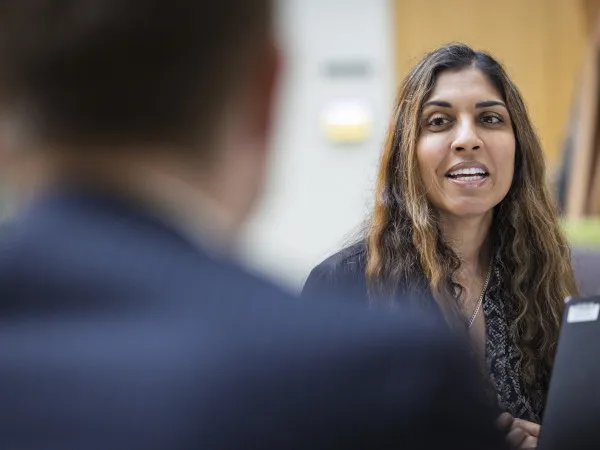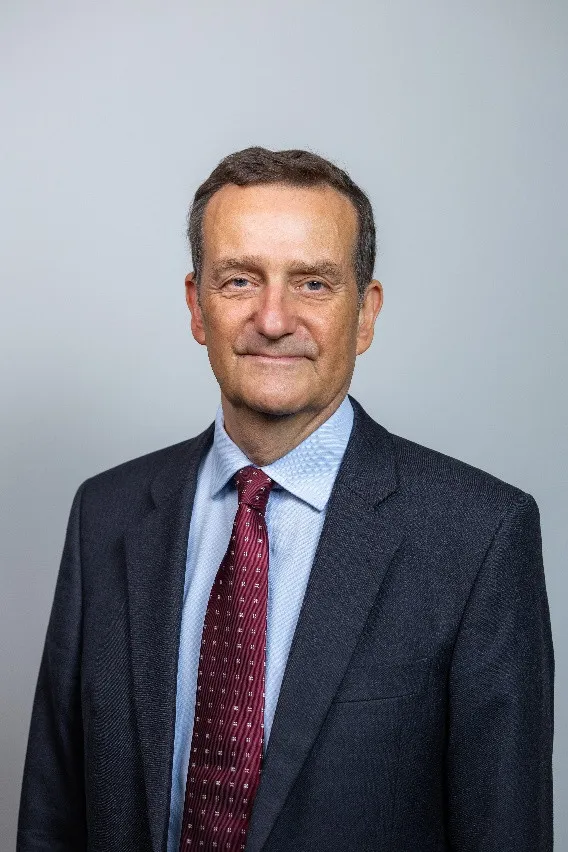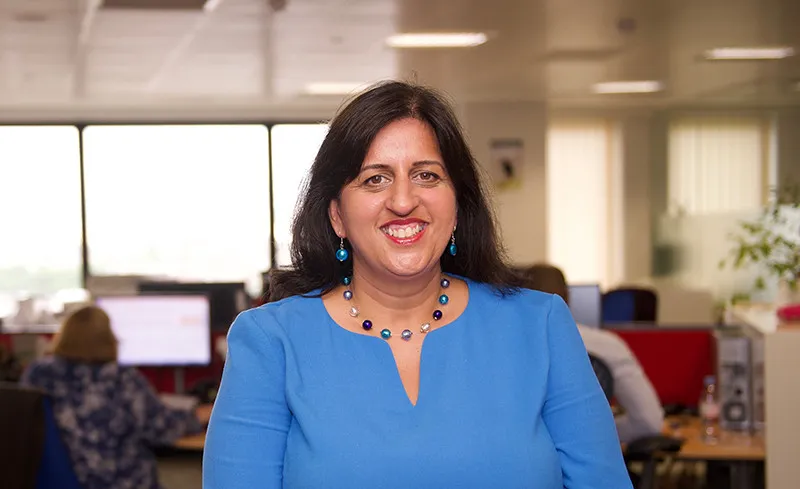Violence Against Women and Girls Strategy 2025-2030
This strategy has been informed and shaped by consultation with national and local community and voluntary sector stakeholders, prosecutors, criminal justice partners, academics, local authorities and other government departments. We have themed our work around the Crown Prosecution Service (CPS) priorities of increased casework quality and increased trust in the CPS.
We want the response to Violence Against Women and Girls (VAWG) crimes to be of consistently high quality, underpinned by research and insight, with staff supported and trained to deliver high quality casework based on an ever-increasing understand of the dynamics of VAWG offending. We want the public and victims to have trust in the CPS and the work we do, with victims feeling supported through the criminal justice process.
This strategy is also available to download in PDF format.
For more context on VAWG, please visit our Violence Against Women and Girls page.

Priority 1: Increased casework quality
VAWG offending is evolving in complexity and sophistication, and this poses additional challenges for the criminal justice system. Advances in technology are enabling new ways of facilitating offending, including using tracking apps on phones to monitor victims, and dating apps enabling offenders to target victims online. Online-facilitated VAWG such as cyberflashing and intimate deepfakes, are some of the newest and more challenging forms of offending that society faces. For the Crown Prosecution Service to deliver high quality casework when prosecuting these complex cases, we need to develop new skills, increase our understanding of VAWG and work closer with our criminal justice partners. We will continue to engage across government to share our prosecutorial insight and ensure that new legislation designed to tackle offending is grounded in prosecutorial knowledge.
Recognising the very human context of every case is integral to understanding the impact of the alleged offending on the victim. That is why the suspect-centric, victim-focussed and trauma-informed approach is central to our VAWG casework. This approach to casework places the emphasis on assessing the actions of the suspect, focussing on the needs of the victim, and responding and communicating in a way as to reduce further trauma. We are also working with partners and stakeholders to better develop our knowledge and understanding of intersectionality and intersectional approaches and how different groups experience VAWG and the experience they have of the criminal justice system. This can only benefit our casework quality and outcomes for victims.
Aim for 2025-2030: We increase our casework quality when handling VAWG cases
Outcome: We effectively respond to the complex and evolving nature of VAWG.
Activity
- Develop and rollout new VAWG training modules on ‘honour’-based abuse, forced marriage, female genital mutilation, and stalking or harassment.
- Review and update guidance on ‘honour’-based abuse, reflecting the expansion of offending in this area.
- Develop a Stalking Action Plan to address the complexities and changing behaviours (including cyberstalking) exhibited within this type of offending.
- Develop a ‘honour’-based abuse, forced marriage and FGM Action Plan to strengthen our oversight and governance of these cases, including hosting a national multi-agency conference to share best practice, raise awareness and promote partnership working to tackle HBA and FGM.
- Explore opportunities to increase and share knowledge on new and evolving technologies, to assist prosecutors with the complexities of new types of offending, particularly those committed using new technologies and in virtual spaces.
- Review and update prosecution guidance on domestic abuse to incorporate new learning and understanding.
- Embed the learning from expert research, conducted jointly by academics and policing colleagues, on the overlap between domestic abuse and rape and serious sexual offences into our work on VAWG.
- Effectively respond to the evolving nature of CSA and technology-facilitated CSA, by increasing our own knowledge and sharing our insights across government and agencies.
Outcome: We develop and articulate clear case strategies that are suspect-centric, victim-focussed, and trauma-informed within casework.
Activity
- Work with specialist organisations and experts on the psychological impact of trauma to develop new training on trauma for all prosecutors.
- Review and update VAWG prosecution guidance and training to embed learning on the suspect-centric approach from Operation Soteria, and suspect-centric narratives from Crown Prosecution Service research into the public understanding and attitudes to RASSO and consent.
- Working with the police, develop a process to ensure police and Crown Prosecution Service maximise opportunities to share examples of good work relating to Evidence Led Prosecutions and are aware of and utilise national guidance and tools for Domestic Abuse victims who are unwilling or unable to support a prosecution.
- Launch a RASSO Casework Strategy learning programme, blending case studies with reflective discussions to help prosecutors embed suspect-centric thinking and strengthen case strategy development.
Outcome: Our people’s wellbeing is valued.
Activity
- Evaluate the uptake and delivery of the RASSO Wellbeing Package, including reflective practice sessions, to explore which elements of the package could be rolled out to those working on VAWG cases.
- Explore assistance to better support employees within the organisation who are victims of abuse.
- Reaffirm and uphold our commitment to tackling abusive behaviours within the organisation, through our policies and ways of working.
Outcome: We work effectively with our criminal justice partners.
Activity
- Work with the NPCC to implement and deliver the Domestic Abuse Joint Justice Plan to improve the investigation, prosecution, and collective handling of domestic abuse cases.
- Review and update the joint protocols on the handling of VAWG cases between the Crown Prosecution Service and the National Police Chiefs’ Council (NPCC), for example the protocol on the handling of ‘honour’-based abuse and forced marriage offences and the protocol on FGM.
- Work with the National Policing lead for Modern Slavery to increase prosecutions and to develop a best practice framework for the investigation of modern slavery.
Outcome: Our work is strengthened through an increased understanding of the impact of VAWG on different groups.
Activity
- Work with partners to ensure products, guidance and policies promote the understanding of intersectionality and application of intersectional approaches.
- Work with partners to influence improved accuracy and completeness of data collected on the protected characteristics of victims and suspects/defendants.
Priority 2: Trust
Being honest and open is one of the Crown Prosecution Service’s core values, and transparency and accountability around our performance and our decision making is a fundamental part of this. We are constantly learning and improving. We use a rich variety of sources to measure our performance, from our own performance data to Local Scrutiny and Involvement Panels (LSIPs).
We know that we don’t always get it right. We are grateful to the many people who have shared their experiences of the Crown Prosecution Service and continue to support us to make changes to improve the way in which we work. Our national and local stakeholders, including the Victims’ Commissioner, the Domestic Abuse Commissioner and the London Victims’ Commissioner play an important role in holding us accountable for delivering on our commitments.
We know that there are cases where we have fallen short of providing the service that victims need and rightly expect: it does not reflect our aim of supporting victims through the criminal justice system and minimising further trauma. We are deeply committed to changing that – and to transforming the service we provide to every victim.
Recognising that the circumstances of every case are different, the Crown Prosecution Service has begun a programme of work with stakeholders to better understand and respond to cases where suspects or defendants are also a victim of VAWG. This work will increase our understanding of the barriers suspects and defendants may face to disclosing a history of VAWG and help us to more effectively identify victims in these cases.
Aim for 2025-2030: We increase trust in the Crown Prosecution Service handling of VAWG cases
Outcome: Victims are better informed about and supported through the criminal justice process.
Activity
- Pilot an improved service to all victims of crime who have their case charged by the Crown Prosecution Service. Victims in pilot areas will receive a phone call, email, or letter from the Crown Prosecution Service to explain our charging decision, giving them the opportunity to ask any questions, to hear more about what happens next and their rights under the Victims’ Code. We will also look to pilot an enhanced service for victims of high-risk domestic abuse.
- Deliver an enhanced service for adult RASSO victims that offers a dedicated Victim Liaison Officer and the offer of a pre-trial meeting with the Crown Prosecution Service.
- Evaluate and review benefits and impacts of the Victim Right to Review Pilot in the West Midlands for RASSO cases.
- Launch and implement Victims Service Standards, which sets out the level of service victims can expect to receive from the Crown Prosecution Service, along with their entitlements under the Victims’ Code, Crown Prosecution Service policies and guidance.
- Work with the NPCC to develop and implement a Joint Framework for Victim Communications, which sets out how police Witness Care Units and the Crown Prosecution Service should share information with each other, wider CJS agencies and victims to ensure that victims’ needs are met. The Framework will identify specific processes for information-sharing in cases of Rape and Serious Sexual Offences with adult victims.
- Produce a series of Special Measure victim video guides in partnership with criminal justice agencies, to improve overall victim understanding of Special Measures as a supportive tool.
- Conduct user research to review and develop the VAWG webpages on the Crown Prosecution Service website to provide accessible information, in clear and simple language.
- Review and update the Public Statement on male victims for crimes covered by the VAWG Strategy. Create a dissemination plan to support publication and rollout.
- Utilise local experts within Crown Prosecution Service Areas, such Victim Liaison Officers (VLOs), to increase our knowledge of VAWG support services and specialist organisations.
Outcome: Policy and practice are informed by engagement and scrutiny.
Activity
- Together with the police and partners, hold annual national scrutiny panels on VAWG cases to provide a collaborative forum for consideration, discussion, action, and learning, helping to develop best practice. Initially this will include national scrutiny panels on rape, ‘honour’-based abuse including FGM, and modern slavery.
- Develop a VAWG stakeholder communication and engagement plan for 2025-2030, including engagement with national and local organisations, the Victims’ Commissioner, the Domestic Abuse Commissioner, the London Victims’ Commissioner, the Children’s Commissioner and the Association of Police and Crime Commissioners.
- Refresh the membership of the national VAWG External Consultation Group, to ensure it is reflective of the diversity of victims and the range of VAWG offences.
Outcome: Prosecutors explore reasonable lines of enquiry to better understand cases where the suspect or defendant of a crime is also a victim of VAWG.
Activity
- Incorporate points of learning and understanding about suspects and defendants who are also victims within relevant prosecution guidance and training.
- Work with stakeholders to understand the barriers to suspects and defendants disclosing history of VAWG and address the barriers that exist within the Crown Prosecution Service.
- Issue guidance on correct communication processes, particularly concerning communication with the defence.
Outcome: Key metrics and outcomes are publicly available, reported on, and owned at all levels for a full range of VAWG offences.
Activity
- Update guidance on accurately flagging VAWG cases and the importance of this practice for all staff.
- Explore the use of auto-flagging in some VAWG cases to improve the accuracy of flagging.
- Ensure that new Power BI dashboards include the ability to view and filter data and metrics for a range of VAWG offences to respond to data in a more agile way.
Outcome: Area level insights and Local Scrutiny and Involvement Panels (LSIPs) help identify emerging trends in our performance.
Activity
- Evaluate the use of the RASSO and DA Insights tools, reflecting on how data analysis has been used at national and local levels to inform solutions and priorities.
- Create a robust feedback mechanism to feed insights from Areas and LSIPs into a national repository which is used to strengthen policy and practice.
Cultural priorities
We know that this VAWG programme of work requires a reflective, trauma-informed and victim-centred culture. The culture of the Crown Prosecution Service impacts everything we do, how we do it, and everyone we encounter while doing our work: our colleagues, criminal justice system partners, victims, suspects and defendants, support organisations, and the public. It impacts how we are viewed, the experiences of those going through the criminal justice system and the confidence that victims and the public have in our ability to deliver justice fairly, openly, and independently.
To most effectively implement the actions set out in this VAWG Strategy and achieve the benefits we wish to see, we have identified five cultural priorities that will be at the centre of this strategy. These priorities have been grounded in the academic and Inspectorate reports into our work. The actions in this strategy will also reinforce the organisational culture we aspire to have in the Crown Prosecution Service.
Engagement with victims
We will support victims through the criminal justice system, aiming to minimise further trauma, and transform the service we provide to every victim.
New Victim Service Standards will help us to hold ourselves accountable for the level of service we should consistently provide to victims.
Case and trial strategy
We will ground robust case strategies in the suspect-centric approach, the identification and reframing of assumptions and misconceptions, and full consideration of how a case and the whole story of offending should be presented at court.
Self-reflection and learning
We will use the latest research and developments in the field of VAWG to improve our understanding and handling of VAWG cases as well as providing continuous learning and knowledge sharing opportunities for all staff working on VAWG cases.
Prioritising wellbeing
Working on VAWG cases can be distressing, especially for those who work with graphic evidence and directly with victims and witnesses. Vicarious trauma can have a negative impact both on professional performance and personal wellbeing and relationships. Supporting our peoples’ wellbeing is an important part of equipping our teams with the right tools to carry out their role
Partnership working
Close joint working between police, prosecutors and other agencies, including support organisations, is key to driving up the number of successful VAWG prosecutions, identifying those who are repeat and serial offenders and the greatest threat, and to supporting and protecting victims from further harm.
What the CPS has done
Terminology
Language and terminology are important in the criminal justice system, and it is acknowledged that a range of terms are used by different organisations. Below are the terms and definitions as used in this strategy.

